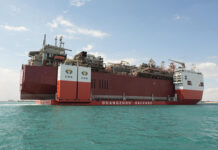Singapore national carrier and technology giant readying for next phase of co-operation
Pacific International Lines (Pte) Ltd (“PIL”), Singapore’s leading containership operator, collaborates with IBM Singapore (“IBM”) in another blockchain trial to design and create an electronic bill of lading which will significantly enhance the documentation process in supply chain management.
The PIL-IBM collaboration was supported by Maritime and Port Authority of Singapore, Singapore Shipping Association, Infocomm Media Development Authority, Singapore Customs (National Trade Platform), and Bank of China Limited Singapore Branch (BOC).
A Bill of Lading is the crucial piece of documentation in the facilitation of international trade as it contains legal and commercial information such as:
- – Evidence of contract of carriage;
- – Receipt of goods; and
- – Title of the goods
Traditionally, a Bill of Lading is a physical document which banks rely on to provide trade financing. The Bill of Lading is usually mailed to various parties leaving it open to fraud, loss of the original document, document handling costs resulting in much inefficiency across the supply chain.
To improve the process, PIL and IBM have proposed using an electronic Bill of Lading (e-BL) to streamline and replicate the paper trail online on a blockchain ledger created by IBM.
The e-BL will do away with the hard copy paper trail, cut unnecessary handling costs and the possibility of fraud.
Lisa Teo, Executive Director of PIL, said: “This is a big step forward for PIL. As an international shipping company, we believe we have a role to play in enhancing efficiencies within the intermodal transport logistics ecosystem. Working with a complex logistic network comprising ports and terminals, agencies, government entities, banks and shippers; systematic supply chain management is increasingly important to lower costs through the chain by cutting unnecessary expense, movements and handling.
“Traditionally, information flow is predominantly handled via manual processes and the supply chain is slowed down when there are many points of communication within its framework. The use of blockchain technology to allow for the direct exchange of documents and information via the decentralised network to boost transparency, eliminate disputes forgeries and unnecessary risks will be key for this industry to progress.”
Next month (November) , the e-BL will be extended to shadow a shipment end-to-end in real time. The creation of the electronic Bill of Lading will be in line with PIL’s ultimate goal of the creation of intermodal transport logistics ecosystem which incorporates the use of blockchain.
PIL believes that with this greater efficiency, better transparency and greater cost savings can be achieved leading to the industry delivering more efficient solutions to the end users, the customers





